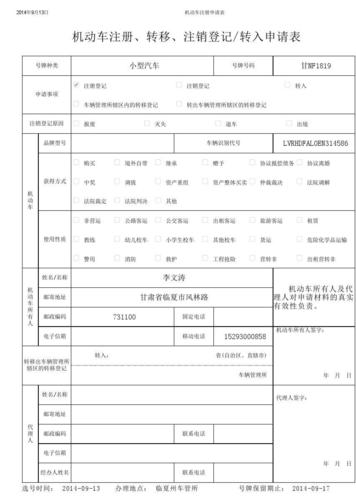:: env_java.bat or env_java.cmd:: reg /?:: 临时变量set hkcu_env_root="HKEY_CURRENT_USER\Environment"set hklm_env_root="HKEY_LOCAL_MACHINE\SYSTEM\ControlSet001\Control\Session Manager\Environment"reg query %hkcu_env_root%reg query %hklm_env_root%\CLASSPATH:: 设置系统环境变量reg add %hklm_env_root% /v JAVA_HOME /t REG_SZ /d "D:\\java\\jdk-15" /freg add %hklm_env_root% /v CLASSPATH /t REG_SZ /d .;^%JAVA_HOME^%\lib /f:: 注意: 在扩充字符串中使用插入符号 ( ^ ) 保留%: reg add %hklm_env_root% /v Path /t REG_EXPAND_SZ /d ^%JAVA_HOME^%\bin;%Path% /f:: %var%将被替换为实际值reg add %hklm_env_root% /v Path /t REG_EXPAND_SZ /d "%JAVA_HOME%\bin;%Path%" /f:: 若是设置用户环境变量,用%hkcu_env_root%用powershell; env_java.ps1; help item; 临时变量$hkcu_env_root="Registry::HKEY_CURRENT_USER\Environment"$hklm_env_root="Registry::HKEY_LOCAL_MACHINE\SYSTEM\ControlSet001\Control\Session Manager\Environment"; Registry::HKEY_CURRENT_USER === HKCU:; $hkcu_env_root="HKCU:\Environment"; $hklm_env_root="HKLM:\SYSTEM\ControlSet001\Control\Session Manager\Environment"; 查看已存在的环境变量get-item $hkcu_env_rootget-item $hklm_env_root; help Get-ItemProperty; Get-ItemProperty -path $hklm_env_root -name TMPGet-ItemProperty $hklm_env_root TMPGet-ItemPropertyValue $hklm_env_root TMP; 设置系统环境变量; help Set-ItemProperty; -type [String<REG_SZ>|ExpandString<REG_EXPAND_SZ>|Binary<REG_BINARY>|DWord<REG_DWORD>|MultiString<REG_MULTI_SZ>|Qword<REG_QWORD>]; Set-ItemProperty -path $hklm_env_root -name JAVA_HOME -value "D:\\java\\jdk-15\\" -type string -forceSet-ItemProperty $hklm_env_root JAVA_HOME "D:\java\jdk-15" -type string -force; 仅使用时%JAVA_HOME%会被替换实际值Set-ItemProperty $hklm_env_root CLASSPATH ".;%JAVA_HOME%\lib" -type ExpandString -forceSet-ItemProperty $hklm_env_root Path "%JAVA_HOME%\bin;%Path%" -type String -force; 若是设置用户环境变量,用$hkcu_env_root5. reg文件编写5.1. .reg文件Windows 中的注册表文件( system.dat 和 user.dat )是 Windows 的核心数据库REG文件实际上是一种注册表脚本文件,双击REG文件即可将其中的数据导入到注册表中注:路径分隔符不要用'/'5.2. 文件格式<关键字><空行>; 注释行<注册表操作集合><空行><关键字>:一般是"Windows Registry Editor Version 5.00" 若是Windows9X/ME/NT4.0是REGEDIT4<注册表操作集合>: 一般格式如下的一行或多行:[注册表路径][-注册表路径][注册表路径\项名]; REG_SZ的格式"键名"="数据值"[注册表路径\项名]; 非REG_SZ的格式"键名"=数据类型:新数据值[注册表路径\项名]"键名"=-PS: 当数据类型是非REG_GZ,需要填入Hex值,可以用regedit随便创建一个项键值对,将值填入需要的数据,然后导出此项的reg文件,查看此文件中的键值内容5.3. 字符串与hex的互转用pwsh将字符串( reg_expand_sz 或 reg_multi_sz )与Hex( Hex(2) 或 Hex(7) )实现互转:; reg_expand_sz => Hex(2); 单行实现 'hex(2):{0},00,00' -f (@( [System.Text.Encoding]::GetEncoding("utf-16").GetBytes("%tmp%;0123,abcd;中文;!@#$") | %{ $_.tostring('x2')} ) -join ',' ); 分步实现$str_value ="%tmp%;0123,abcd;中文;!@#$"; $str_bin = @( $str_value.ToCharArray() | %{ ([int32]$_).ToString('x04') } | %{ '{1},{0}' -f $_.substring(0,2), $_.substring(2,2) } ) -join ','$str_bin = @( [System.Text.Encoding]::GetEncoding("utf-16").GetBytes($str_value) | %{ $_.tostring('x2')} ) -join ','$hex_value = 'hex(2):{0},00,00' -f $str_bin"CONVERT '{0}' TO '{1}'" -f $str_value, $hex_value; reg_multi_sz => hex(7); 单行实现'hex(7):{0},00,00' -f ( ( @( [System.Text.Encoding]::GetEncoding("utf-16").GetBytes("%tmp%0123abcd中文!@#$") | %{ $_.tostring('x2')} ) -join ',' ) -replace ',0a,00',',00,00' ); 分步实现$str_value = "%tmp%0123abcd中文!@#$"$str_bin = @( [System.Text.Encoding]::GetEncoding("utf-16").GetBytes($str_value) | %{ $_.tostring('x2')} ) -join ','$hex_value = 'hex(7):{0}' -f ( $str_bin -replace ',0a,00',',00,00' )"CONVERT '{0}' TO '{1}'" -f $str_value, $hex_value; reg_expand_sz <= hex(2); 单行实现[System.Text.Encoding]::GetEncoding("utf-16").GetString(@( ("hex(2):25,00,74,00,6d,00,70,00,25,00,3b,00,30,00,31,00,32,00,33,00,2c,00,61,00,62,00,63,00,64,00,3b,00,2d,4e,87,65,3b,00,21,00,40,00,23,00,24,00,00,00".Remove(0,7) -replace ',00,00$','') -split ',' | % { (Invoke-Expression "0x$_") } )); 分步实现$hex_value = "hex(2):25,00,74,00,6d,00,70,00,25,00,3b,00,30,00,31,00,32,00,33,00,2c,00,61,00,62,00,63,00,64,00,3b,00,2d,4e,87,65,3b,00,21,00,40,00,23,00,24,00,00,00"$hex_data = $hex_value.substring( 7 , $hex_value.length - 7 ); $hex_data = "25,00,74,00,6d,00,70,00,25,00,3b,00,30,00,31,00,32,00,33,00,2c,00,61,00,62,00,63,00,64,00,3b,00,2d,4e,87,65,3b,00,21,00,40,00,23,00,24,00,00,00"$hex_data = $hex_data.substring( 0, $hex_data.length - 6 )$str_bytes = @( $hex_data -split ',' | % { (Invoke-Expression "0x$_") } )$str_value = [System.Text.Encoding]::GetEncoding("utf-16").GetString($str_bytes); $str_value = @( ( $hex_data | Select-String '([0-9a-fA-F]{2},[0-9a-fA-F]{2})' -AllMatches ).matches.value | % { "0x{1}{0}" -f $_.substring(0,2),$_.substring(3,2)} | % { [char] (Invoke-Expression $_) } ) -join ''; $str_value = @( [regex]::matches($hex_data, "(?i)([0-9a-fA-F]{2},[0-9a-fA-F]{2})") | %{$_.Groups[1].Value} | % { "0x{1}{0}" -f $_.substring(0,2),$_.substring(3,2)} | % { [char] (Invoke-Expression $_) } ) -join ''"CONVERT '{0}' TO '{1}'" -f $hex_value, $str_value; reg_multi_sz <= hex(7); 单行实现[System.Text.Encoding]::GetEncoding("utf-16").GetString(@( ("hex(7):25,00,74,00,6d,00,70,00,25,00,00,00,30,00,31,00,32,00,33,00,00,00,61,00,62,00,63,00,64,00,00,00,2d,4e,87,65,00,00,21,00,40,00,23,00,24,00,00,00,00,00".Remove(0,7) -replace ',00,00$','') -split ',' | % { (Invoke-Expression "0x$_") } )) -split '\0'; 分步实现$hex_value = "hex(7):25,00,74,00,6d,00,70,00,25,00,00,00,30,00,31,00,32,00,33,00,00,00,61,00,62,00,63,00,64,00,00,00,2d,4e,87,65,00,00,21,00,40,00,23,00,24,00,00,00,00,00"$hex_data = $hex_value.substring( 7 , $hex_value.length - 7 ); $hex_data = "25,00,74,00,6d,00,70,00,25,00,00,00,30,00,31,00,32,00,33,00,00,00,61,00,62,00,63,00,64,00,00,00,2d,4e,87,65,00,00,21,00,40,00,23,00,24,00,00,00,00,00"$hex_data = $hex_data.substring( 0, $hex_data.length - 6 )$str_bytes = @( $hex_data -split ',' | % { (Invoke-Expression "0x$_") } )$str_value = [System.Text.Encoding]::GetEncoding("utf-16").GetString($str_bytes)$str_value = $str_value -split '\0'"CONVERT '{0}' TO '" -f $hex_value; $str_value; "'"5.4. 增删操作5.4.1. 增删项在HKEY_CURRENT_CONFIG下新建项new_item[HKEY_CURRENT_CONFIG\new_item]删除HKEY_CURRENT_CONFIG的项new_item[-HKEY_CURRENT_CONFIG\new_item]5.4.2. 增删键值在HKEY_CURRENT_CONFIG\new_item下新建键new_key[HKEY_CURRENT_CONFIG\new_item]"new_key"="a new key's value"; 修改直接将key的填改为新值删除HKEY_CURRENT_CONFIG\new_item键new_key[HKEY_CURRENT_CONFIG\new_item]"new_key"=-5.5. .reg样例(常见数据类型键值对)Windows Registry Editor Version 5.00[HKEY_CURRENT_CONFIG\test]@="我的默认字符串值""reg_sz"="%tmp%;0123,abcd;中文;!@#$""reg_binary"=hex:01"reg_dword"=dword:00000020"reg_qword"=hex(b):40,00,00,00,00,00,00,00"reg_expand_sz"=hex(2):25,00,74,00,6d,00,70,00,25,00,3b,00,30,00,31,00,32,00,33,00,2c,00,61,00,62,00,63,00,64,00,3b,00,2d,4e,87,65,3b,00,21,00,40,00,23,00,24,00,00,00"reg_multi_sz"=hex(7):25,00,74,00,6d,00,70,00,25,00,00,00,30,00,31,00,32,00,33,00,00,00,61,00,62,00,63,00,64,00,00,00,2d,4e,87,65,00,00,21,00,40,00,23,00,24,00,00,00,00,006. 上下文(右键)菜单6.1. 文件上下文菜单在文件上右击,出现的菜单项.6.1.1. 注册表位置([...\\]);; 文件选中; 系统[HKEY_CLASSES_ROOT\\shell][HKEY_CLASSES_ROOT\${MyProgID}\shell\open]; 右键上下文菜单@="菜单文字"[HKEY_CLASSES_ROOT\\shellex\ContextMenuHandlers] ; 当前用户 和 本机[HKEY_CURRENT_USER\Software\Classes\][HKEY_LOCAL_MACHINE\SOFTWARE\Classes\]6.1.2. 配置notepad++上下文菜单<文件>Windows Registry Editor Version 5.00; 文件上下文菜单: "用notepad++打开"[HKEY_CLASSES_ROOT\\shell\notepad++]@="用notepad++打开""icon"="D:\\notepad++\\notepad++.exe"[HKEY_CLASSES_ROOT\\shell\notepad++\command]@=“D:\\notepad++\\notepad++.exe \"%1\"”PS: 若仅配置当前用户或本机,请修改为其对应的注册表位置.6.1.3. 配置指定扩展名文件上下文菜单<文件>Windows Registry Editor Version 5.00; MyProgID 配置[HKEY_CLASSES_ROOT\${MyProgID}\DefaultIcon]@="${MyProgID}.ico"[HKEY_CLASSES_ROOT\${MyProgID}\shell\open]; 右键上下文菜单@="用${MyProgID}打开"[HKEY_CLASSES_ROOT\${MyProgID}\shell\open\command]@="\"${MyProgID}.exe\" \"%1\""; .myext关联${MyProgID}且有上下文菜单[HKEY_CLASSES_ROOT\.myext]@="${MyProgID}"[HKEY_CLASSES_ROOT\.myext\OpenWithProgids]"${MyProgID}"=hex(0):6.2. 目录上下文菜单在目录上或当前目录空白处右击,出现的菜单项.6.2.1. 注册表位置([...\Directory]);; 系统; 目录选中[HKEY_CLASSES_ROOT\Directory\shell][HKEY_CLASSES_ROOT\Directory\shellex\ContextMenuHandlers]; 当前目录空白处[HKEY_CLASSES_ROOT\Directory\Background\shell][HKEY_CLASSES_ROOT\Directory\Background\shellex\ContextMenuHandlers];; 当前用户 和 本机[HKEY_CURRENT_USER\SOFTWARE\Classes\Directory][HKEY_CURRENT_USER\SOFTWARE\Classes\Directory\Background][HKEY_LOCAL_MACHINE\SOFTWARE\Classes\Directory][HKEY_LOCAL_MACHINE\SOFTWARE\Classes\Directory\Background]6.2.2. 配置wt(Windows Terminal)上下文菜单<目录>Windows Registry Editor Version 5.00;; 右键菜单; 右键目录(已选中)菜单[HKEY_CLASSES_ROOT\Directory\shell\wt]; 菜单名称@="Windows Terminal"; 图标"Icon"="D:\\mylink\\wt\\terminal.ico"[HKEY_CLASSES_ROOT\Directory\shell\wt\command]; 执行命令@="C:\\Users\\wuxr\\AppData\\Local\\Microsoft\\WindowsApps\\wt.exe -d %V"; 目录(未选中)右键菜单[HKEY_CLASSES_ROOT\Directory\Background\shell\wt]@="Windows Terminal""Icon"="D:\\mylink\\wt\\terminal.ico"[HKEY_CLASSES_ROOT\Directory\Background\shell\wt\command]@="C:\\Users\\wuxr\\AppData\\Local\\Microsoft\\WindowsApps\\wt.exe -d %V"; 以管理员身份运行 HKEY_CURRENT_USER 或 HKEY_LOCAL_MACHINE[HKEY_CURRENT_USER\SOFTWARE\Microsoft\Windows NT\CurrentVersion\AppCompatFlags\Layers]"C:\\Users\\wuxr\\AppData\\Local\\Microsoft\\WindowsApps\\wt.exe"="~ RUNASADMIN"PS: 若仅配置当前用户或本机,请修改为其对应的注册表位置.7. 文件关联将扩展名的文件关联一个或多个程序,会呈现默认关联程序图标,双击直接打开,右击出现"打开方式..."选择关联程序打开.词条说明:图标 = 呈现关联程序图标打开方式 = 右击文件出现"打开方式..."选项双击打开 = 双击文件由关联程序或选择某个关联程序打开7.1. 注册表位置([...\.myext\])假定扩展名是.myext; 系统[HKEY_CLASSES_ROOT\.myext]; 当前用户 [HKEY_CURRENT_USER\Software\Microsoft\Windows\CurrentVersion\Explorer\FileExts\.myext]; 程序ID[HKEY_CLASSES_ROOT\${程序ID}][HKEY_CLASSES_ROOT\Applications\${程序ID}]7.2. 已存在的程序ID注册表配置假设应用程序notepad++,notepad,vscode都已安装正常,并已存在下面的注册表内容.Windows Registry Editor Version 5.00;; 程序ID; [HKEY_CLASSES_ROOT\${程序ID}]; [HKEY_CLASSES_ROOT\Applications\${程序ID}];; notepad++; ID=Notepad++_file[HKEY_CLASSES_ROOT\Notepad++_file][HKEY_CLASSES_ROOT\Notepad++_file\SupportedTypes]; ".myext"=""[HKEY_CLASSES_ROOT\Notepad++_file\shell\open\command]@="\"D:\\notepad++\\notepad++.exe\" \"%1\""; ID=notepad++.exe[HKEY_CLASSES_ROOT\Applications\notepad++.exe][HKEY_CLASSES_ROOT\Applications\notepad++.exe\shell\open\command]@="\"D:\\notepad++\\notepad++.exe\" \"%1\"";; VSCODE; ID=vscode[HKEY_CLASSES_ROOT\vscode][HKEY_CLASSES_ROOT\vscode\shell\open\command]@="\"D:\\VSCode-win32-x64\\Code.exe\" --open-url -- \"%1\""; ID=Code.exe[HKEY_CLASSES_ROOT\Applications\Code.exe][HKEY_CLASSES_ROOT\Applications\Code.exe\shell\open\command]@="\"C:\\Users\\wuxr\\AppData\\Local\\Programs\\Microsoft VS Code\\Code.exe\" \"%1\"";; notepad; ID=notepad.exe[HKEY_CLASSES_ROOT\Applications\notepad.exe][HKEY_CLASSES_ROOT\Applications\notepad.exe\shell\open\command]@="%SystemRoot%\system32\notepad.exe %1";; command=程序 参数... 支持环境变量(%var%),位置参数(%n),特殊符号(\")需转义; "\"D:\\notepad++\\notepad++.exe\" \"%1\""; "%SystemRoot%\system32\notepad.exe %1"; "\"D:\\VSCode-win32-x64\\Code.exe\" --open-url -- \"%1\""; "\"C:\\Users\\wuxr\\AppData\\Local\\Programs\\Microsoft VS Code\\Code.exe\" \"%1\""7.3. 配置扩展名的关联程序下面是扩展名(.myext)的文件,配置关联程序(notepad++,notepad,vscode)的注册表配置.7.3.1. 全局扩展名关联扩展名关联配置对所有用户有效.关联方法1Windows Registry Editor Version 5.00;;; 关联方法1:默认链接已存在的程序ID(仅限[HKEY_CLASSES_ROOT\]下);; .myext默认关联包括: 图标, 打开方式,双击打开[HKEY_CLASSES_ROOT\.myext]; 程序ID(仅[HKEY_CLASSES_ROOT\Notepad++_file]); @="${程序ID}" ; 等同于链接@="Notepad++_file"关联方法2Windows Registry Editor Version 5.00;;; 关联方法2:新建并关联程序;; .myext默认关联包括: 图标,双击打开[HKEY_CLASSES_ROOT\.myext\DefaultIcon]@="\"D:\\notepad++\\notepad++.exe\",0"[HKEY_CLASSES_ROOT\.myext\shell\open\command]; 程序(D:\\notepad++\\notepad++.exe)@="\"D:\\notepad++\\notepad++.exe \" \"%1\""; [-HKEY_CLASSES_ROOT\.myext\shell]关联方法3Windows Registry Editor Version 5.00;;; 关联方法3:OpenWithProgids链接已存在的程序ID(仅限[HKEY_CLASSES_ROOT\]下);; .myext默认关联包括: 图标, 打开方式,双击打开[HKEY_CLASSES_ROOT\.myext\OpenWithProgids]; 程序ID(仅[HKEY_CLASSES_ROOT\${程序ID}]) 叠加OpenWithList; "${程序ID}"=hex(0): ; 等同于链接"Notepad++_file"=hex(0):"vscode"=hex(0):关联方法4Windows Registry Editor Version 5.00;;; 关联方法4:OpenWithList链接已存在的程序ID(仅限[HKEY_CLASSES_ROOT\Applications\]下);; .myext默认关联包括: 打开方式[HKEY_CLASSES_ROOT\.myext\OpenWithList]; 程序ID(仅[HKEY_CLASSES_ROOT\Applications\${程序ID}])[HKEY_CLASSES_ROOT\.myext\OpenWithList\notepad++.exe][HKEY_CLASSES_ROOT\.myext\OpenWithList\notepad.exe]; [-HKEY_CLASSES_ROOT\.myext\OpenWithList]7.3.2. 当前用户配置扩展名关联扩展名关联配置仅对当前用户有效.关联方法5Windows Registry Editor Version 5.00;; 当前用户.myext的关联[HKEY_CURRENT_USER\Software\Microsoft\Windows\CurrentVersion\Explorer\FileExts\.myext];; .myext默认关联包括: 图标, 打开方式,双击打开[HKEY_CURRENT_USER\Software\Microsoft\Windows\CurrentVersion\Explorer\FileExts\.myext\OpenWithProgids]; 程序ID(仅[HKEY_CLASSES_ROOT\${程序ID}]) 叠加OpenWithList; "${程序ID}"=hex(0): ; 等同于链接"Notepad++_file"=hex(0):"vscode"=hex(0):;; .myext默认关联包括: 双击打开选择关联程序[HKEY_CURRENT_USER\Software\Microsoft\Windows\CurrentVersion\Explorer\FileExts\.myext\OpenWithList]; 程序ID(仅[HKEY_CLASSES_ROOT\Applications\${程序ID}])"a"="notepad++.exe""b"="notepad.exe""MRUList"="ab";[-HKEY_CURRENT_USER\Software\Microsoft\Windows\CurrentVersion\Explorer\FileExts\.myext]8. 参考资料高级用户的 Windows 注册表信息如何使用-reg-文件添加-修改或删除注册表子项和值powershellcore(pwsh)参考powershell关于正则Powershell: The many ways to use regex
(图片来源网络,侵删)








0 评论